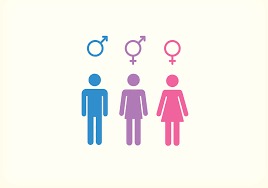
First impressions are often formed within seconds of meeting someone and can have a lasting impact on how we perceive them. The psychology behind first impressions reveals how our brains quickly evaluate others based on various factors, such as appearance, body language, tone of voice, and even our own biases.
These instantaneous judgments play a significant role in shaping our relationships, both personal and professional.
Research shows that people form opinions about others in just a fraction of a second, often relying on visual cues like facial expressions, posture, and attire. According to a study published in Psychological Science, it takes only milliseconds for individuals to make snap judgments about traits like trustworthiness, likability, and competence.
This quick assessment is due to the brain's need to process information rapidly in order to make social decisions, which can be crucial in unfamiliar or high-stakes situations.
However, first impressions are not always accurate. They are often influenced by unconscious biases and stereotypes, which can lead to unfair or incomplete judgments. For example, someone might be judged based on their physical appearance or the way they dress, despite not knowing anything about their personality or abilities.
This is where the concept of "thin slicing" comes into play where we make judgments based on very limited information. While it can be useful for making quick decisions, it can also perpetuate misjudgments.
The good news is that first impressions can be changed. Once we get to know a person better and gather more information, we are more likely to adjust our initial judgment. Being aware of how first impressions work allows us to approach new encounters with a more open mind, helping to build more meaningful connections.
In conclusion, the psychology of first impressions is a powerful force in human interactions. It shapes how we perceive others and can influence the course of our relationships. Understanding this phenomenon can help us make better judgments and foster more positive connections.
Post a comment
Why setting boundaries at work is essential?
- 25 Apr, 2025
- 2
SZA’s Transformative Journey: The Impact of Samyama Meditation in India
- 10 Feb, 2025
- 2
A Silent UNO Rule Has Just Been Confirmed… Are You...
- 19 Feb, 2025
- 2
The New Rules of Dating You Need to Know!
- 22 Mar, 2025
- 2
Why do Hindus tie 'Kalawa'?
- 27 Jan, 2025
- 2
Categories
Recent News
Daily Newsletter
Get all the top stories from Blogs to keep track.

















